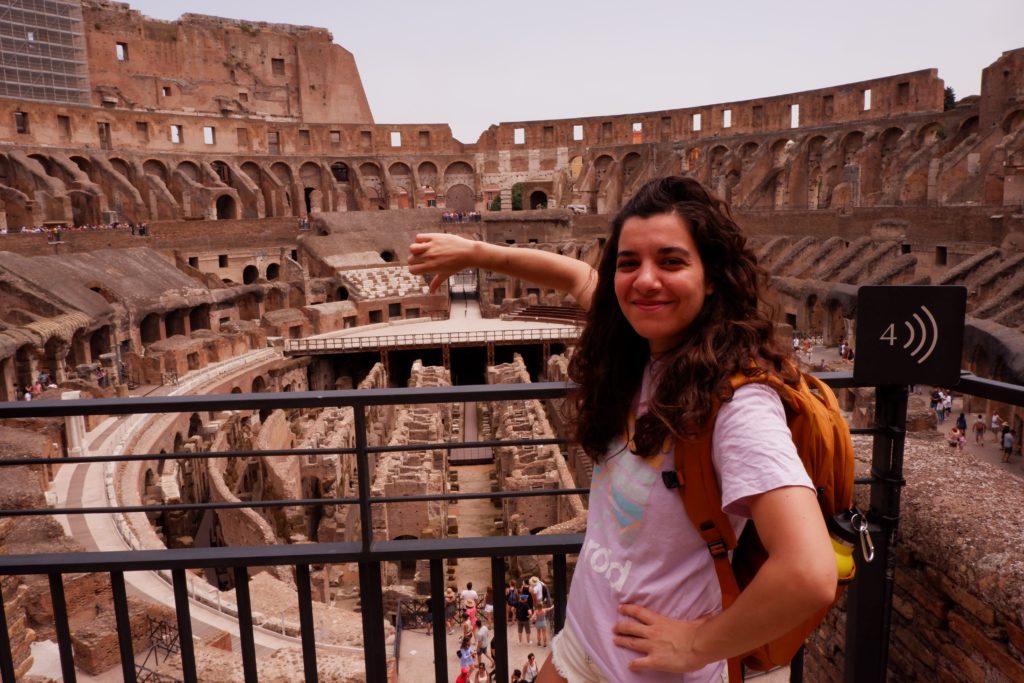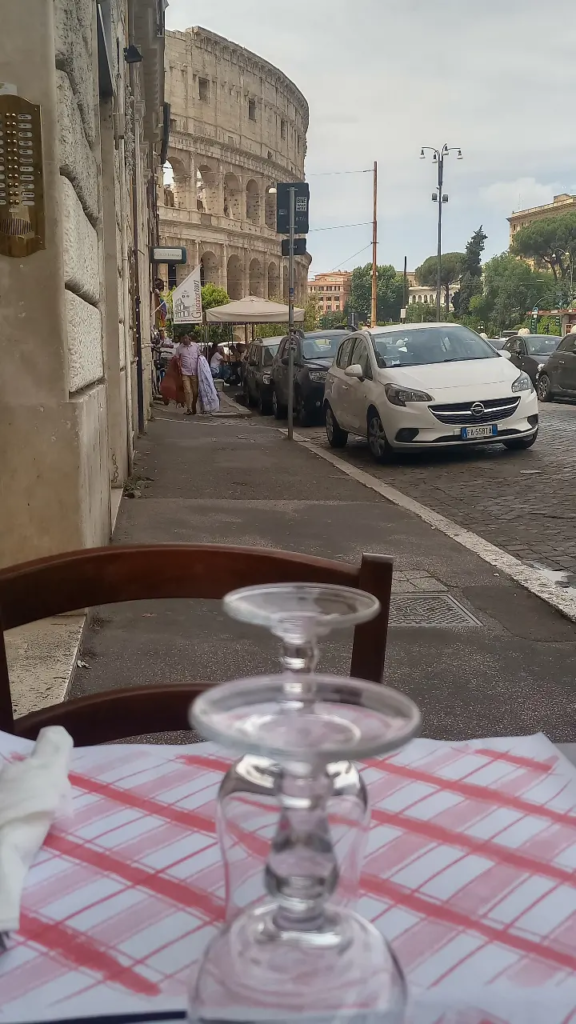During my first week in Rome, I only slept a few hours each night. I was everywhere, tasted every type of pasta in the region and talked to every available person. In some places, like the Colosseum, I was there several times, at different times of the day. I think that is one of my favorite places in Rome. I was also in Trastevere several times and in the Jewish ghetto, where I would go to eat “Carciofi alla giudìa”. I must say that despite being in one of the most irrigated hearts of Italy, the amount of tourism, in general, is such that it is not always easy to encounter Italians, especially when you go to monumental places. But being this the first week, and my first time in Rome, I allowed myself to participate in these hotbeds of tourists while learning a little about the reasons that bring people from all over the world to Rome.

However, in the midst of the bustle of multilingualism, I could identify this word that the Romans said to each other from time to time: “schialla”. Soon after, Augusto, my conversation teacher at the Italian school, would explain to me that this expression means something like “relax”. I quickly adopted it and began to use it mostly for myself whenever I had to wait for the bus not knowing at what time it would come. A surprise for me was that, according to the Romans, I was very lucky to be hosted in an apartment that was a twenty-minute walk from a “metropolitana” station. To go to school, I have no possibility but to take the metro every day as the buses don’t run frequently. But this walk in the middle of the suffocating heat is not pleasant for me in the afternoons. I see that young people use bicycles and city scooters, although I realize that in order to use them you have to know the traffic rules very well and pay a lot of attention. I prefer to use my time and attention to get to know the city better. To deal with the hot weather when I return home after a “passeggiata” I usually have a delicious Roman gelato. My favorite flavor is pistacchio.

One of the grammatical aspects of Italian that I had to absorb quickly was the difference between the informal second person “tu” and the formal second person “Lei”. During my lessons at Notre Dame with my wonderful professor Patrick Vivirito, I practiced this difference but it wasn’t until I was here that I understood the importance of handling the shift between one form and the other in a fluent and natural way. On the metro, for example, I pay attention to the form Romans use before saying “schendo” to indicate that they are getting off at the next station. There are those who always use the formal expression to ask permission and say: “Scusi, schendo” and others who sometimes use the informal expression when their counterpart is young: “Scusa, schendo”. In the metro I was addressed in both ways and I began to think about which one I should use. I started to do the same in cafés and restaurants, when ordering a carbonara, for example. One aspect of communication that I really appreciate about the Romans is that they always answer me in Italian even though they can easily see that I am a foreigner. They never switch to English if I choose to use their language, and I think they appreciate that.

In the next post I will tell about the school, the friends I made, and the most beautiful places I visited.